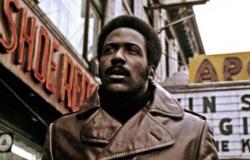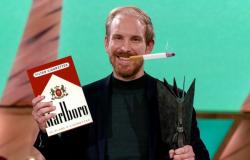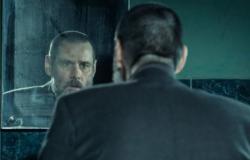Thysia Huisman wrote the thriller ‘Sensation Island’, about a fictional reality program. In it she incorporated what she saw going wrong in TV land as a director and editor-in-chief over the past 25 years. What are her own experiences with inappropriate behavior? And is anything changing?
Welcome to Sensation Island, the most extreme reality program that TV maker and writer Thysia Huisman (50) could come up with. The candidates on the tropical island are chained together this season, so that they suffer even more.
They also all have to hide a personal secret in order to have a chance to win 1 million euros. While the candidates are being psychologically manipulated, there is also all kinds of misery going on in the employee resort. Boundaries are lost, colleagues jump over corpses and no one can be trusted.
For her thriller, Huisman drew on more than 25 years of TV experience as a director and editor, from Big Brother to Project Catwalk. She also made a season of Expedition Robinson. ‘That was a fantastic experience, like being in an action movie. But you are also isolated from the outside world, both the candidates and the crew. Then anything can happen.’ She did not participate in Temptation Island, the other association that her thriller evokes. ‘But I did do the casting for Secret Story, in which participants also carried a secret.’
In your book, investigative journalist Puck goes undercover at Sensation Island, but she becomes part of all the intrigues. As a maker, have you ever pushed the boundaries?
‘I am a storyteller, whether I write books or make TV. I notice that sometimes I want everything for the story. What a candidate wants or finds important is often secondary. You can, in a sense, bend them to your will, just like characters in a book. But you should never forget that you are dealing with real people who often do not realize what they are getting into and how much impact it has. I remember that for a docuseries we followed a police officer who was cheating on his wife. That was a nice contrast, but he was afraid that this image would damage his work and that he would be laughed at by colleagues. Then we changed the editing slightly.’
What tricks do TV makers use to send reality candidates?
‘At Expedition Robinson people are hungry. They sleep poorly, sit in the scorching sun and have flea bites. So they prefer to do nothing in the shade. Then as a creator you have to create drama by, for example, insinuating something that causes fireworks – you call them bombs. At Project Catwalk, two candidates really hated each other. Then you let them do an assignment together. But it starts with the casting. Hummie van der Tonnekreek, the first editor-in-chief of Big Brother, had many theories about this. In any case, you need two alpha males who fight for leadership, plus a number of docile types. And people who are good at manipulation. During the casting, people are tested in groups: who will stand up for someone else, and who will keep their mouth shut?’
The disclaimer of ‘Sensation Island’ states that similarities between existing people and characters are coincidental. Yet I recognize a certain TV magnate in the merciless Jim de Vos from production house Vulpo. Aren’t you afraid of his reaction?
‘I have not heard anything yet. Maybe after this interview. I did talk to my publisher about this, but he didn’t foresee any problems. And everyone in Hilversum knows what John de Mol is like. So it’s my joke to refer to that in my book.’
Why did you want to write a thriller about limitless reality TV now?
I have heard so many experiences from colleagues in recent years that nothing happened. They say they recognize a lot from my book. I want to hold up a mirror to ourselves, that you can go too far. Television is made so important, while we are not saving lives.’
What news on this theme has touched you the most?
‘What happened at The Voice, because these were the first cases of sexual misconduct in the media that came out. I was really angry because perpetrators were held over their heads and victims were blamed. And it is already so difficult to open your mouth and report it. It affected me all the more because of my own past with sexual misconduct.’
As a model I was never in control, but behind the scenes I finally had some control
Self-destructive behavior
Huisman won a modeling competition at a young age. But that career came to an abrupt end when she was drugged and raped at the age of 18 by French model scout Jean-Luc Brunel. Twenty years later, after the rise of the MeToo movement and the revelations about the American sex offender Jeffrey Epstein (a friend of Brunel), Huisman was the first victim to report Brunel and wrote the book ‘Close-Up’ (2020) about it. She is open about the self-destructive behavior resulting from this abuse; she took refuge in going out, drugs and bad men. She also had a criminal, violent boyfriend at the age of 21, about which she writes in the autobiographical novel ‘Het Boek M’ (2022).
The TV world seems to me to be a harmful environment in which to process such traumas.
‘In retrospect, you do have a point. But I didn’t know at first how dangerous the TV world could be. As a model I was never in control, but behind the scenes I finally had some control. These short TV contracts also allow you to start over again and again. So before anyone realized I actually had a problem and numbed myself, I was on to the next job. I sometimes told what had happened to me, but in a kind of light version: that the modeling world is simply toxic, with a lot of perverts.’
What was it like to now write about transgressive behavior in fictional form?
‘I did that with more distance. With ‘Close-Up’ it often felt like someone else was writing for me, because it flowed out so much. ‘Sensation Island’ felt lighter because it wasn’t about myself. I actually enjoyed writing that more. Although those scenes about sexual misconduct remain difficult. I always have problems with that.’
©Truus van Gog
Is something changing in the way TV is made?
‘I notice that the twenty-somethings I work with clearly indicate their boundaries. On the one hand, I think it’s admirable. I often exceeded my own limits by working eighty hours a week and driving to Schubbekutteveen on Sunday mornings if told to do so the night before. But when I recently asked an editor at a residential program to quickly paint a wall before the shooting day, he said that this was not part of his job description. I could have done it myself, but I was in editing at the time. So we have to get the job done together and just do certain things that are necessary. Welcome to the real world.”
Do you prefer to write about TV, or do you want to continue making TV?
‘Both. Maybe because of ‘Sensation Island’ I can no longer contact certain producers. But I have also become more selective myself. I don’t need that hardcore reality anymore. I prefer to make docuseries in which you follow people in their own environment instead of downing candidates somewhere. I want to create something beautiful with a nice group of people that I can support. There are also talks to adapt ‘Sensation Island’ into a film. There have also been plans for years to make a series of ‘Close-Up’, so I know how long that could all take. But I would like to contribute to the screenplay. ‘Sensation Island’ is the first part in a thriller series about intrigues behind the scenes. The publisher wanted more, so I’m happy with that. I’m already working on part two, about a docuseries in a fishing village where people become involved in a criminal organization. For this I am again inspired by my work as a TV maker, and partly by other docuseries.’
And if they start filming Sensation Island on a tropical island, will you come along?
‘Sure! Oh my god, that’s going to be something.’






